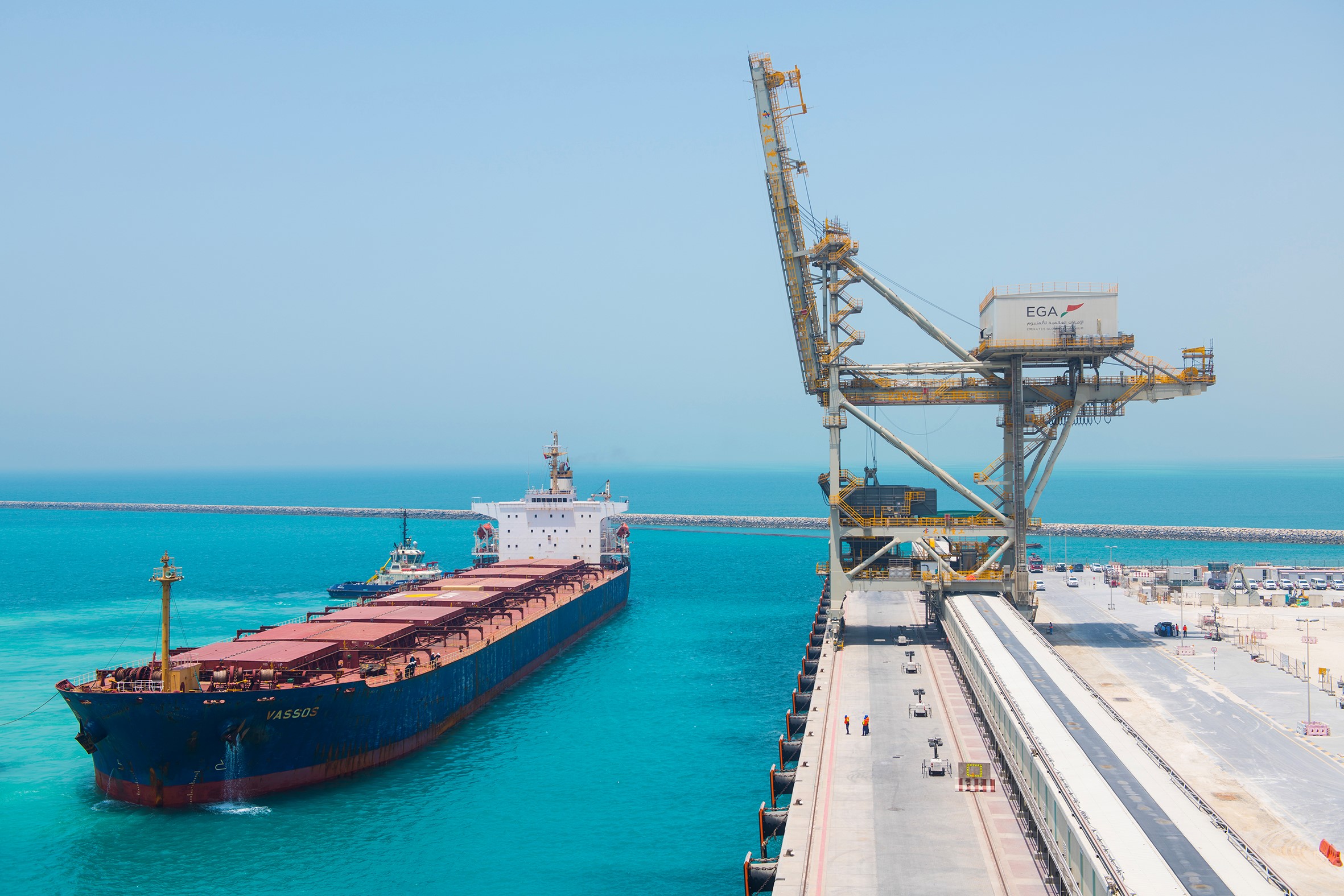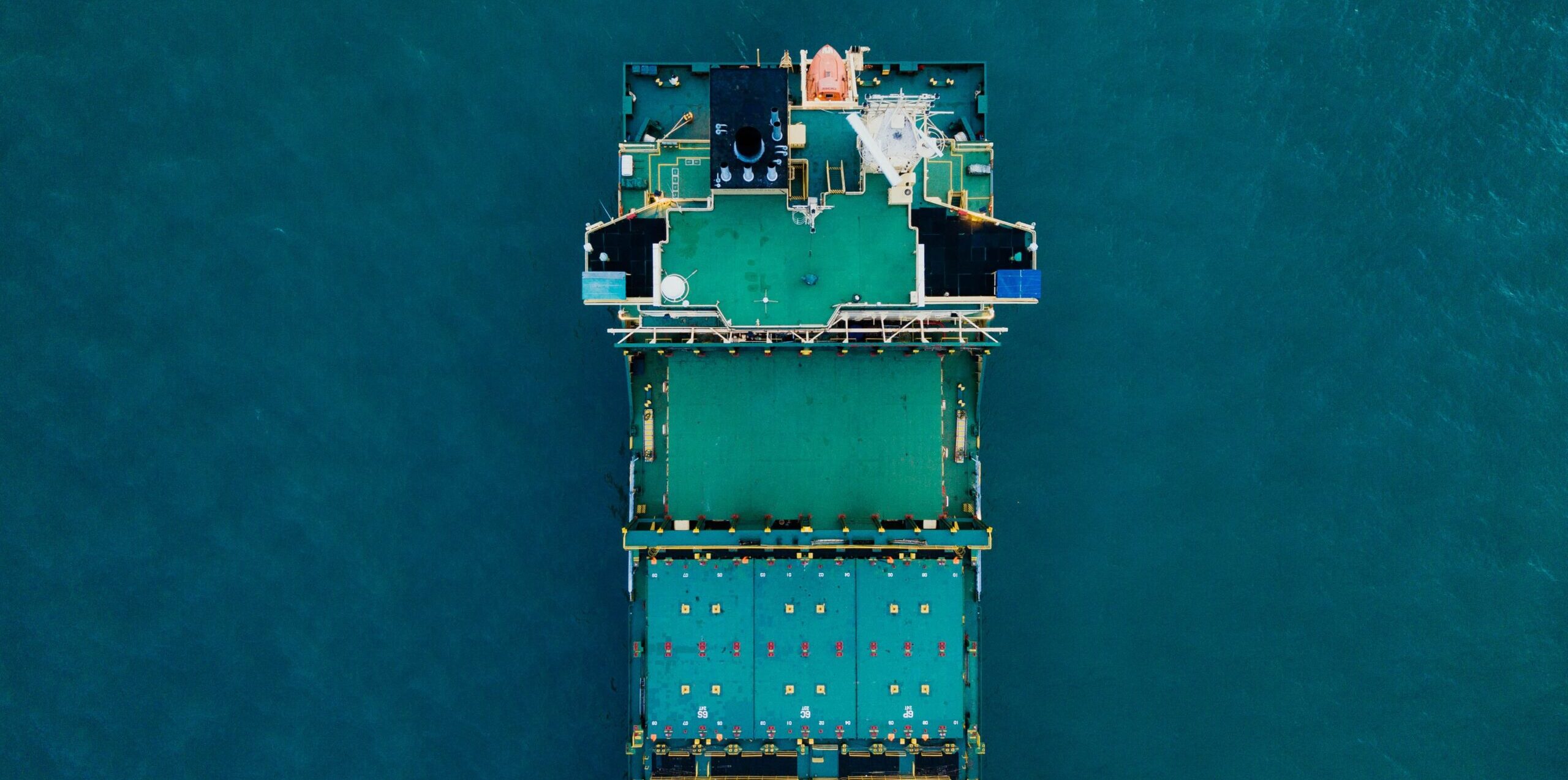United Arab Emirates, [20] December 2023 – Emirates Global Aluminium, the world’s largest ‘premium aluminium’ producer and the biggest industrial company in the United Arab Emirates outside oil and gas, has become the first aluminium producer and the first Middle East company to join the Sea Cargo Charter.
The Sea Cargo Charter sets a global framework to assess and disclose the climate alignment of ship chartering activities to reduce the annual greenhouse gas emission of global shipping to net zero by around 2050, in line with the goals of the International Maritime Organization, the United Nations agency responsible for regulating global shipping.
EGA ships some 22 million tonnes of aluminium, bauxite and raw materials around the world each year. While the production of raw materials accounts for the bulk of EGA’s scope 3 emissions, global shipping accounts for a meaningful proportion.
The global shipping industry as a whole was responsible for two per cent of anthropomorphic greenhouse gas emissions in 2022, according to the International Energy Agency.
Abdulnasser Bin Kalban, Chief Executive Officer of Emirates Global Aluminium, said: “The aluminium EGA produces plays an essential role in the development of a more sustainable society. It is also important how sustainably it is produced, and this includes shipping raw materials to our production sites and bauxite and metal to our customers worldwide. EGA has committed to reaching net zero by 2050, including from our supply chain. Joining the Sea Cargo Charter will enable us to further improve our performance and achieve our goal to reach net zero from supply chain activities.”
Eman Abdalla, Sea Cargo Charter Vice Chair, and Global Operations Director at Cargill, said: “We are pleased to have EGA as the first global aluminium producer and Middle East industrial company to join the Sea Cargo Charter. The journey to more sustainable shipping starts with a commitment to transparency, a unified methodology, and emissions reporting. We hope EGA’s example inspires other participants in the aluminium industry to follow a similar path towards carbon emissions transparency in their supply chain.”
In 2022, EGA signed an agreement with one of its shipping partners, “K” Line to develop and implement new marine decarbonisation technologies suitable for EGA’s bulk cargo shipping routes in the eastern Atlantic Ocean, Mediterranean Sea and Indian Ocean.
Ends
Media contact at EGA:
- Simon Buerk
- sbuerk@ega.ae
- +971 56 3111 536
Media contact for Sea Cargo Charter:
- Molly P. Hannon
- mph@globalmaritimeforum.org
- +45 53 76 67 87
About EGA
Since 1975, when it was founded as Dubai Aluminium by His Highness Sheikh Rashid bin Saeed Al Maktoum, Emirates Global Aluminium has been innovating aluminium to make modern life possible.
Today EGA is the world’s biggest ‘premium aluminium’ producer and the largest industrial company in the United Arab Emirates outside the oil and gas industry.
EGA is equally-owned by Mubadala Investment Company of Abu Dhabi and the Investment Corporation of Dubai. It is the largest company jointly owned by the two Emirates.
EGA is an integrated aluminium producer, with operations from bauxite mining to the production of cast primary aluminium. EGA operates aluminium smelters in Jebel Ali and Al Taweelah, an alumina refinery in Al Taweelah and a bauxite mine and associated export facilities in the Republic of Guinea.
EGA’s aluminium is the second largest made-in-the UAE export after oil and gas. In 2022, EGA sold 2.72 million tonnes of cast metal. EGA is the only UAE producer and makes the UAE the fifth largest aluminium producing nation in the world.
EGA has more than 400 customers in over 50 countries. In 2022, value-added products accounted for 78 per cent of EGA’s cast metal sales.
EGA’s aluminium is primarily used in the construction, automotive, packaging, aerospace and electronics industries.
Around 10 per cent of EGA’s aluminium production is sold in the UAE to around 26 downstream aluminium companies that make products with EGA’s aluminium. The growing broader aluminium sector in the UAE supports almost 48,000 jobs. EGA itself employs around 6,800 of these people including more than 1,200 UAE Nationals.
EGA has focused on technology development for over 30 years. EGA has used its own technology for every smelter expansion since the 1990s and has retrofitted all its older production lines. In 2016 EGA became the first UAE industrial company to licence its core industrial process technology internationally.
As a corporate citizen of the UAE, EGA aspires in all its operations to be measured amongst the world’s leading metals and mining companies in meeting its environmental and social responsibilities. In 2017, EGA became the first Middle East headquartered company to join the Aluminium Stewardship Initiative, a global programme to foster greater sustainability and transparency in the aluminium industry. In 2019, EGA’s Al Taweelah site became the first in the Middle East to receive certification from ASI for its sustainability practices and performance. EGA’s Jebel Ali site was certified in 2021. EGA’s bauxite mining subsidiary, Guinea Alumina Corporation, achieved the first ASI certification in Guinea in 2023. Al Taweelah alumina refinery was certified later in 2023, with the result that EGA now has all of its global operations certified to the aluminium industry’s internationally recognised standard for environmental and social performance and governance.
In 2021, EGA began production of CelestiAL solar aluminium, produced with solar power from the Mohammed Bin Rashid Al Maktoum Solar Park on the outskirts of Dubai. EGA is the first company in the world to make aluminium commercially using the power of the sun.
EGA was formed in 2014 through the merger of Dubai Aluminium and Emirates Aluminium.
EGA’s Jebel Ali aluminium smelter began production as DUBAL in 1979. At almost five square kilometres, this site is five times bigger than Dubai Mall.
EMAL started production in 2009 and its Al Taweelah aluminium smelter was the largest single-site aluminium smelter in the world when completed. EGA’s Al Taweelah site is five times bigger than Al Maryah Island at six square kilometres.
EGA has its own power stations at both sites, producing electricity to meet its needs. EGA’s electricity generation capacity is 6,474 megawatts, making EGA the third largest electricity generator in the UAE after the Dubai and Abu Dhabi utilities. EGA also produces water through desalination units at its power plants.
EGA began production at Al Taweelah alumina refinery in April 2019. EGA’s alumina refinery is the first in the UAE and only the second in the Middle East. The project reduces the UAE’s dependence on imported alumina and supplies over 45 per cent of EGA’s needs.
Bauxite exports from Guinea Alumina Corporation, EGA’s wholly-owned subsidiary in Guinea, began in August 2019. The GAC project was one of the largest greenfield investments in Guinea in over 40 years.
About the Sea Cargo Charter
The Sea Cargo Charter establishes a framework for assessing and disclosing the climate alignment of ship chartering activities around the globe. It sets a benchmark for what it means to be a responsible charterer in the maritime sector and provides actionable guidance on how to achieve this. The Sea Cargo Charter is consistent with the policies and ambitions of the International Maritime Organization (IMO), including its ambition for net-zero emissions from international shipping “by or around” 2050, with indicative checkpoints in 2030 and 2040 compared to 2008. As a result, the Sea Cargo Charter enables bulk ship charterers – and soon also ship owners – to align their activities with responsible environmental behaviour and incentivise international shipping’s decarbonisation – to shape a better future for maritime shipping and society.
The Sea Cargo Charter is one of three initiatives based on the same four Principles and developed with the Global Maritime Forum. Together with the Poseidon Principles and the Poseidon Principles for Marine Insurance, they share a common objective: fostering transparency on emissions reporting with the aim of contributing to reducing carbon emissions.


